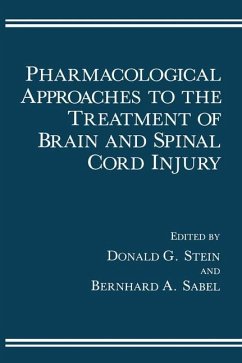
Brain Injury and Protection During Heart Surgery

PAYBACK Punkte
76 °P sammeln!
`The reduction of the celebral complications of cardiac surgery is undoubtly going to be of increasing importance both medically and legally over the next five years and this book is a valuable contribution within the subject.' -- Perfusion
"`The book is recommended to those whose practice includes cardiopulmonary bypass as a reference and to those who are seeking an introduction to the spectrum of neuropsychiatric complications encountered after cardiac surgery, and what can be done to minimize their incidence.' -- Chest, July 1990
"`The book is recommended to those whose practice includes cardiopulmonary bypass as a reference and to those who are seeking an introduction to the spectrum of neuropsychiatric complications encountered after cardiac surgery, and what can be done to minimize their incidence.' -- Chest, July 1990
Brain injury is one of the most unacceptable complications sustained during heart surgery. This book presents the current results and thinking of a number of leading clinical investigators in this area. Nearly all have been active in serious studies designed to define various aspects of brain physiology, patho physiology, or protection during cardiac operations performed with cardio pulmonary bypass. We were particularly interested in obtaining contributions from younger investigators. Brain injury is a problem which has long troubled those involved with perioperative care of the cardiac surgical patient. The first chapter by Dr. Torkel Aberg presents a summary of his extensive investigations into this problem. It is intended both to present the perspective of a surgeon interested in this problem, and to serve as an introduction to the overall issue of avoiding brain injury during heart surgery. The next three chapters discuss the problem of perfusion pressure, outcome, and brainblood flow. Dr. Sarnquist's contribution stems from his extensive experience with low flow bypass as practiced at Stanford University and the results of the studies he performed in collaboration with Dr. Fish. Drs. Govier and Reves discuss in some detail the general effects of anesthetic agents upon brain metabolic needs as well as their important data demonstrating preserva tion of brain blood flow autoregulation during cardiopulmonary bypass (CPB) as practiced at the University of Alabama. Finally Dr.














